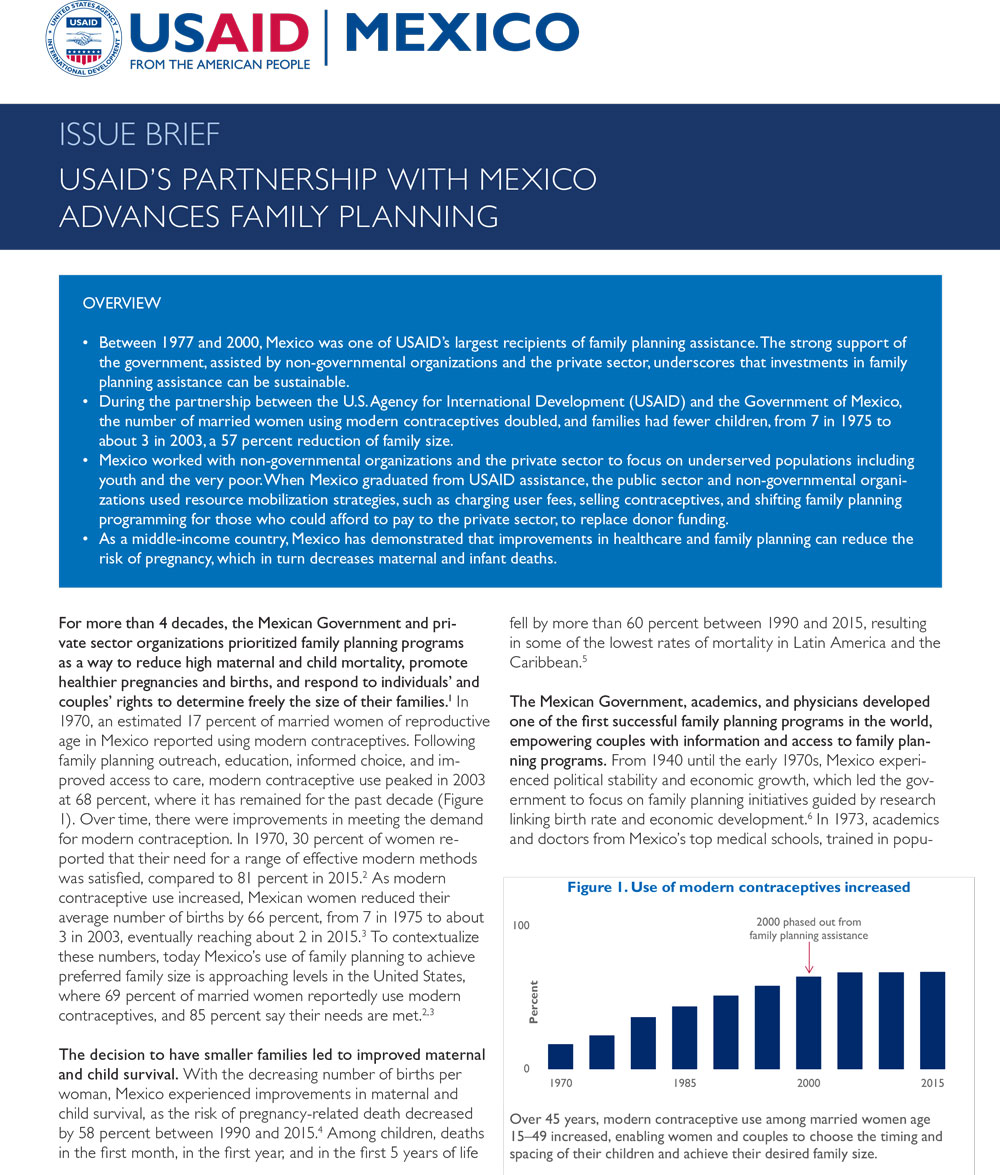Home » What We Do » Global Health » Health Areas » Family Planning » Countries » USAID's Partnership with Mexico Advances Family Planning
- What We Do
- Agriculture and Food Security
- Democracy, Human Rights and Governance
- Economic Growth and Trade
- Education
- Environment and Global Climate Change
- Gender Equality and Women's Empowerment
- Global Health
- Humanitarian Assistance
- Transformation at USAID
- Water and Sanitation
- Working in Crises and Conflict
- U.S. Global Development Lab
Speeches Shim
For more than 4 decades, the Mexican Government and private sector organizations prioritized family planning programs as a way to reduce high maternal and child mortality, promote healthier pregnancies and births, and respond to individuals’ and couples’ rights to determine freely the size of their families.
Overview
- Between 1977 and 2000, Mexico was one of the U.S. Agency for International Development’s (USAID’s) largest recipients of family planning assistance. The strong support of the government, assisted by non-governmental organizations and the private sector, underscores that investments in family planning assistance can be sustainable.
- During the partnership between USAID and the Government of Mexico, the number of married women using modern contraceptives doubled, and families had fewer children, from 7 in 1975 to about 3 in 2003, a 57 percent reduction of family size.
- Mexico worked with non-governmental organizations and the private sector to focus on underserved populations including youth and the very poor. To replace donor funding when Mexico graduated from USAID assistance, the public sector and non-governmental organizations used resource mobilization strategies, such as charging user fees, selling contraceptives, and shifting family planning programming for those who could afford to pay to the private sector.
- As a middle-income country, Mexico has demonstrated that improvements in healthcare and family planning can reduce the risk of pregnancy, which in turn decreases maternal and infant deaths.


Comment
Make a general inquiry or suggest an improvement.